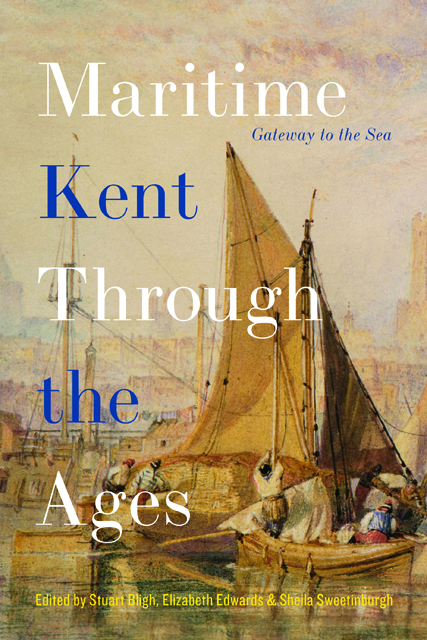10 - The Early Modern Period 1500–1700: Trade and Industry
Published online by Cambridge University Press: 20 December 2023
Summary
During the sixteenth and seventeenth centuries, maritime Kent experienced increasing economic activity and expansion in waterborne commerce and industry along the coast, the most important the growth in the coastal grain trade to London. The fishing industry continued to be an important part of their livelihood for many men with small boats in coastal communities but a commercial expansion in the herring industry took place at Dover in the early seventeenth century. The range of goods imported from abroad in general increased, while a boom in Dover’s international trade took place between 1620 and 1650. New industries were established including naval shipbuilding along the Medway and Thames estuaries, a new draperies textile industry in Sandwich, and smaller-scale copperas and gunpowder industries on the Thames and Swale estuaries, all of which expanded Kent’s coastal and continental trade. It was a period which saw continuity, innovation and increasing commercialisation. Some of these developments continued throughout the period whilst others took place during a more limited time, and individual ports, villages and creeks along the coast varied in their fortunes.
Various factors influenced the history of Kent’s maritime trade and industry during this period. The dramatic growth in the population of London and its importance as a distribution centre shaped Kent’s maritime economy and its coastal trade, in particular, increasing the demand for grain from the 1560s and especially malt in the seventeenth century. Imports from the Continent to ports such as Dover and Sandwich were transported to London by road, although also destined for growing local markets as Kent’s population increased. The location of the emergent naval shipbuilding centres on the Medway and at Deptford, Woolwich and Erith on the Thames Estuary was influenced by their proximity to the capital.
London money was not greatly evident, except in those industries which needed a larger capital investment in plant, such as copperas and gunpowder. Government investment and policy, however, developed the naval dockyards and was an essential element in Dover’s entrepôt trade, which was also made possible by government funding for the rebuilding of Dover harbour in Elizabeth I’s reign. London merchants were more active in the export of both grain and cloth to the Continent and especially southern Europe during the seventeenth century.
- Type
- Chapter
- Information
- Maritime Kent through the AgesGateway to the Sea, pp. 235 - 252Publisher: Boydell & BrewerPrint publication year: 2021



